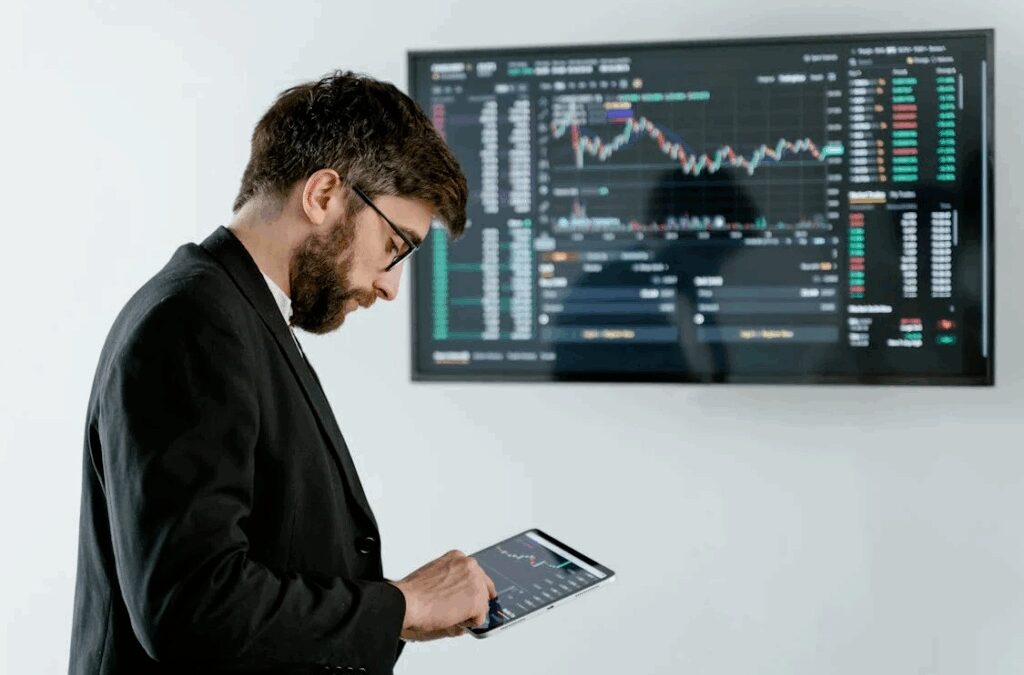CFDs (Contracts for Difference) and Futures… What are they? Both popular financial instruments that are used to trade various markets.
Basically, CFDs allow traders to speculate on price movements without owning the asset, whilst Futures involve agreements to buy or sell assets at a predetermined price on a future date (hence the names!).
Both offer opportunities for profit. But they operate under distinct mechanisms and rules. So, let’s see how they compare…
Ownership and Asset Structure: Understanding the Differences
As we touched upon in the intro, CFDs and Futures differ significantly in how they approach ownership and asset involvement. Here’s a closer look.
CFDs
With CFDs, you do not own the actual underlying asset. Instead, you’re speculating on price movements—whether it goes up or down.
So:
- It’s ideal for traders who value flexibility over physical ownership.
- There’s no need to worry about storage or the delivery of commodities.
If you choose to trade CFDs, make sure you use a trusted trading platform, such as Axi.
Futures
Futures involve committing to buy or sell an asset at an agreed-upon price on a future date. These contracts often cover tangible assets like oil or gold.
Be aware that:
- They may require physical settlement (in certain cases).
- They could be more suitable if you prefer dealing with real-world goods (over speculative trades, that is).
Each has its unique strengths depending on your trading goals, so carefully analyze both to determine which is right for you. (Of course, you could even trade both CFDs and Futures!)
Contract Duration and Expiration Explained
Next: CFDs and Futures follow different rules when it comes to how long you can hold a position. Here’s what sets them apart.
CFDs
CFDs offer unmatched flexibility with no fixed expiration dates. You can maintain your position indefinitely, provided you meet margin requirements and account for daily financing fees.
So, CFDs:
- Are well-suited for short-term trading strategies that are focused on daily or weekly price movements.
- Give traders the freedom to exit at their discretion without pressure from set timelines.
Also, overnight costs make them less ideal for long-term positions.
Futures
Futures are bound by strict expiration dates, where contracts settle either in cash or through physical delivery of the asset:
- Traders must monitor positions closely as expiration approaches.
- Avoiding settlement often means rolling over contracts, which can incur additional fees.
- They’re best for structured trades with defined timelines.
These time-based differences cater to distinct trading styles. So, consider whether flexible speculation or strategic timing fits your approach better!
Market Access Approaches Differ
CFDs and Futures offer access to markets, but their approaches differ.
What sets them apart?
CFDs
CFDs provide broad flexibility. Therefore, they allow traders to access diverse instruments like stocks, indices, forex, and commodities from a single platform.
With CFDs:
- Positions can be tailored in smaller sizes to match individual risk tolerance.
- They’re ideal for retail traders who prefer customizable trading strategies.
- They suit those seeking versatility without being tied to rigid terms.
Futures
Futures operate under strict standardization with fixed contract terms like lot size and expiration dates. These factors limit personalization for individual traders.
They:
- Are typically designed for larger-scale trades.
- Attract institutional players who are managing bigger portfolios.
- Are less accessible for those needing smaller entry points.
Choose based on whether you value adaptability or structured consistency.
Leverage and Margin: Comparing Risk and Accessibility
Leverage is a key factor in both CFDs and Futures, but each uses it differently. Here’s how:
CFDs
CFDs often offer higher leverage ratios, thus allowing traders to control larger positions with minimal upfront capital.
They provide an accessible entry point for small-scale or speculative trading. And they can magnify profits on favorable market moves.
However, risks increase significantly, as losses may exceed the initial deposit.
Futures
Futures provide leverage too, though generally with stricter margin requirements. Traders need more funds upfront compared to CFDs.
They offer a structured approach that reduces exposure to excessive risk and they attract investors seeking stability over speculative flexibility.
But they may discourage smaller traders due to higher capital needs.
Both options carry rewards and risks based on their margin policies. So, choose wisely based on your tolerance for risk.
Costs: Comparing Fees, Margins, and Commissions
Understanding costs is essential when choosing between CFDs and Futures. Here’s a breakdown:
CFDs
CFD trading generally involves lower upfront costs with spreads (which, if you’re not aware, is the gap between buy and sell prices) as the main expense.
What should you know? Well:
- Overnight financing fees apply if positions extend beyond one day.
- Costs can accumulate for longer-term trades due to daily charges.
- CFDs appeal to traders aiming for short-term gains with minimal initial investment.
Futures
Futures have distinct cost structures, often including broker commissions per contract traded. Margin requirements set by exchanges also act as collateral.
With Futures:
- There are no overnight financing fees like those in CFDs.
- Rolling contracts forward before expiry may introduce additional expenses that are tied to market fluctuations.
- They’re typically better suited for well-funded traders managing extended timelines or larger volumes.
So, evaluate which structure aligns with your trading budget and goals.
The Bottom Line
CFDs and Futures each offer unique benefits. Understanding their distinctions helps you choose the right fit for your goals and risk tolerance.





